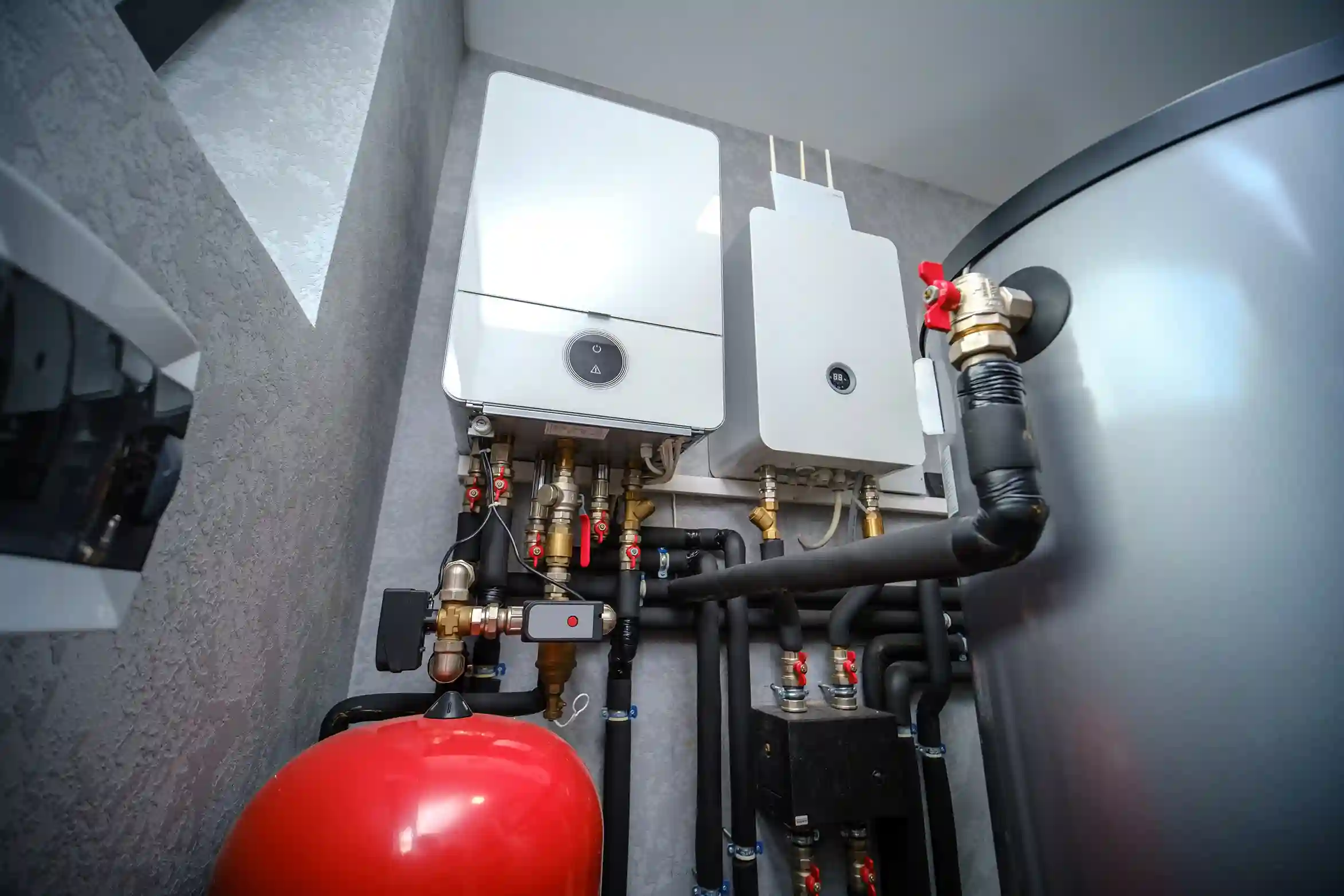Water Heater and Water Softener Combination in Hard Water Issues – A Smart Decision?

Many families, particularly in Texas, deal with hard water. The high mineral concentration of hard water can lead to a variety of difficulties, including blocked pipes and inefficient appliances. If you’re weary of limescale buildup in water heater, installing a water heater water softener combination can be a game changer. This solution not only increases the lifespan of your appliances but also improves water quality. But is this combo the best option for you? Let us delve in and find out.
Understanding Hard Water and Its Effects
Hard water has a high concentration of minerals such as calcium and magnesium. Over time, these minerals build up in appliances, plumbing systems, and even your skin as well as hair. In places with Texas hard water, residents may experience concerns like:
- Limescale buildup in the water heater reduces its efficiency.
- Dry skin and lackluster hair.
- Stiff, scratchy laundry.
- Frequent plumbing repairs due to mineral deposits.
- White blotches and residue on plates and glasses
These concerns can be expensive if not handled promptly. A water softener with a tankless water heater may make a significant impact.
How a Water Heater and Water Softener Combination Works
A water heater water softener combination removes minerals from the water before they enter the heater. The water softener minimizes scale buildup, enabling the heater to operate more efficiently. Here’s a basic explanation of how the system works:
- Water Softener: Removes hard minerals before they reach the heater.
- Water Heater: It softens water, minimizing silt accumulation and enhancing energy efficiency.
- Improved Water Flow: Without mineral deposits, water flows easily through pipes and appliances.
- Energy Efficiency: With reduced buildup, water heats up faster, reducing the amount of energy needed to reach the desired temperature.
- Less Maintenance: Softened water eliminates the need for regular heater descaling and pipe cleaning.
This combination offers improved performance and lifespan for your water heater, whether traditional or tankless.
Key Benefits of Using a Water Softener with a Water Heater
Installing a water softener for a hot water heater has various benefits:
Increases The Lifespan Of Your Water Heater
Mineral deposits from hard water can diminish a heater’s performance, causing premature failures. With a softener, your heater will function well for years. According to studies, utilizing a water softener may double the life of your water heater when compared to using hard water.
Reduces Energy Costs
Limescale-clogged water heaters work harder to heat water. Soft water avoids this accumulation, allowing your heater to run more efficiently and lower your energy expenditures. This can lead to considerable savings on power expenses over time.
Prevents Plumbing Issues
Hard water deposits choke pipes, reducing water flow. Soft water reduces this issue, reducing the likelihood of costly plumbing repairs. With softened water, plumbing fixtures stay residue-free, lowering overall maintenance expenses.
Improves Water Quality
Soft water is softer on the skin, hair, and clothing. It also increases the efficacy of soaps and detergents, resulting in cleaner laundry and dishes. Hard water can leave a filmy residue, but soft water rinses away cleanly, leaving no stains on dishes or buildup in showers.
Improves Water Quality
Soft water lathers more effectively, using less soap, shampoo, and detergent. This saves money while also minimizing chemical use in your house.
What About Tankless Water Heaters?
These are quite popular due to their efficiency, although they are prone to hard water damage. Water softener with a tankless water heater reduces scale accumulation, keeping your system efficient and maintenance-free.
Tankless units heat water on demand, so there is no storage tank where minerals can be collected. However, even without a water softener, minerals can coat the heating components, limiting performance and requiring costly repairs. Combining a tankless water heater and a water softener maintains the system working at full efficiency and reduces maintenance requirements.
Common Concerns About Soft Water and Copper Pipes
Homeowners frequently inquire, “Is soft water bad for copper pipes?” Soft water, which lacks minerals, might be slightly more aggressive on copper pipes. However, this is rarely an issue unless the water is extremely acidic. Most newer homes have corrosion-resistant pipes, which reduces this risk.
To avoid corrosion, monitor pH levels and make sure the water softener is appropriately set. Regular plumbing inspections can also help discover problems early.
Is a Water Heater and Water Softener Combination Right for You?
If you reside in a Texas hard water location, this combo is a wise choice. You’ll benefit from longer-lasting appliances, cheaper energy costs, and fewer plumbing difficulties. Furthermore, your skin, hair, and clothing will appreciate you!
Softened water also enhances the flavor of drinking water and helps to avoid scaling within coffee makers, dishwashers, and washing machines. Installing a water softener for the hot water heater helps the entire home.
Say Goodbye to Hard Water Woes
Dealing with hard water does not have to be an ongoing fight. A water heater and softener combination is a simple yet efficient solution to improve your home’s water quality.
Dinomite Services specializes in the installation and maintenance of water softeners and heaters. If you’re weary of limescale buildup in your water heater or aren’t sure if a water softener for hot water heater is correct for you, we can assist.
We have years of expertise dealing with Texas hard water issues and keeping your water clean and efficient for everyday usage. Do not allow hard water to cause unneeded harm to your home!
Contact Dinomite Services today, and let’s make your water work for you!
